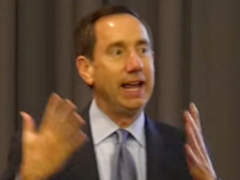
Dodging the Memory Hole 2015: An Action Assembly

May 11–12, 2015
Dodging the Memory Hole 2015: An Action Assembly was held at the main branch of the Charlotte Mecklenburg Public Library in Charlotte, North Carolina. It connected journalists, librarians, archivists and other stakeholders to find actionable solutions to digital news archiving problems.
Dodging the Memory Hole 2015 stories
-
Take Action! Public-Private Partnerships: Importance/Difficulty Matrix
EDWARD MCCAIN: [00:10] We’re going to break up into groups here in a little bit. At the first Dodging the Memory Hole we broke into groups, and we were looking at partnerships. I’ve ranked them here; and I also have some hard copies that I’m going to share with you as groups, but I wanted you to…
-
Take Action! Public-Private Partnerships: Brian Hocker and Edward McCain
EDWARD MCCAIN: [00:08] We have a fairly large group, and we're going to break up the group and continue some of the work that was done on partnerships in the first Dodging the Memory Hole last November. But since we had Brian here today I thought we'd explore a little bit more about his…
-
Keynote: Brian Hocker, KXAS-TV, NBCUniversal
MARTIN HALBERT: [Slide 1, 00:00] I’m Martin Halbert, dean of libraries at the University of North Texas. It’s my pleasure to introduce our keynote speaker, who I advocated for very hard. Brian Hocker is vice president for digital media production and research at NBC 5 / KXAS in Dallas-Fort Worth. Let me tell you why…

